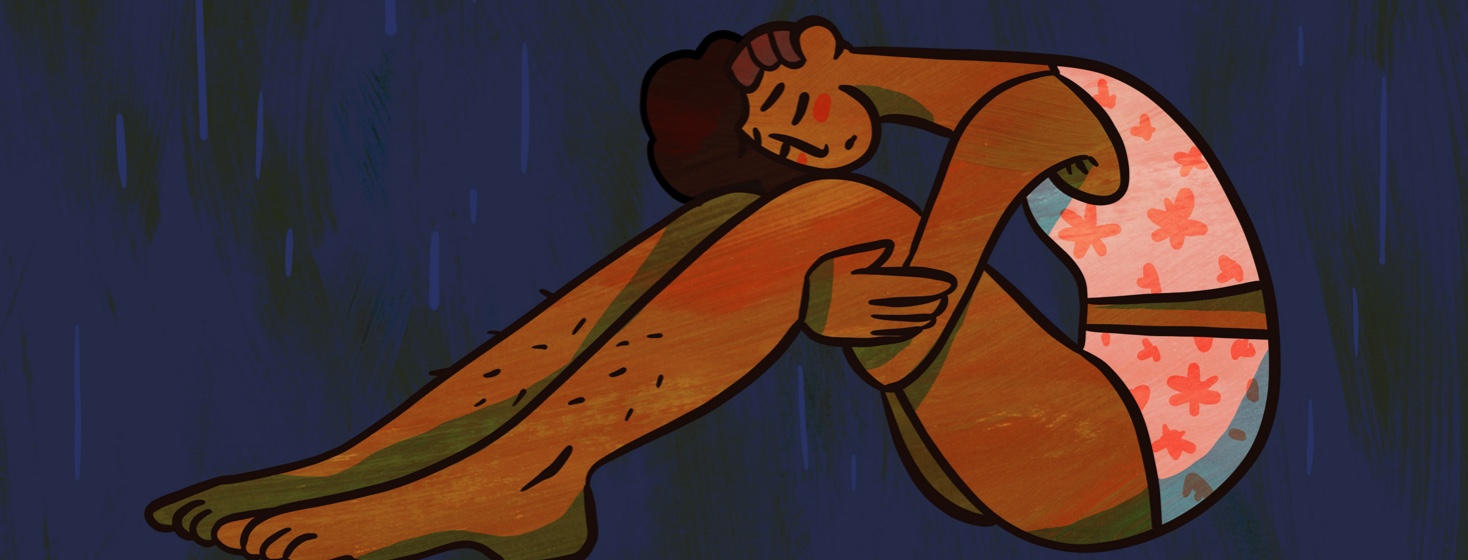What Are the Differences Between Postpartum Depression and "Regular" Depression?
Having a baby can be an exciting and happy time. But for some people who have given birth, it can come with negative emotions or even postpartum depression (PPD).1,2
PPD is a type of depression that happens to mothers after childbirth. Depression that is not associated with childbirth and/or new parenthood is called major depressive disorder (MDD). A link between PPD and MDD exists. These 2 conditions can also share similar symptoms. But they are considered 2 separate conditions.1,2
What is postpartum depression (PPD)?
Childbirth and pregnancy can have a huge impact on your hormones. Many mothers experience the "baby blues" after giving birth because of hormone changes. This can cause:1,2
- Crying
- Anxiety
- Restlessness
But if these feelings last longer than 2 weeks, they may be a sign of a more serious issue. Negative feelings that do not go away on their own after giving birth are a sign of PPD.1,2
About 1 in 5 mothers experience PPD. PPD causes strong feelings of sadness, anxiety, and despair that do not go away. These feelings can interfere with daily tasks.1,3
What is major depressive disorder (MDD)?
Everyone feels sad sometimes. But feelings of sadness that do not go away may be a sign of MDD. MDD interferes with day-to-day life. MDD symptoms may last months or years and may not always go away on their own.3
Postpartum vs. depression?
One of the biggest differences between PPD and MDD lies in what triggers the depression. In most cases, PPD is triggered by childbirth and/or new parenthood. MDD may have triggers, but some people may also develop MDD on their own.3
PPD and MDD can also have slightly different symptoms. Some symptoms of MDD may include:3
- Persistent feelings of sadness, anxiety, hopelessness, or worthlessness
- Irritability
- Loss of energy or interest in hobbies and activities
- Too much or too little sleep
- Thoughts of suicide
Symptoms of PPD may include:3
- Crying easily
- Feeling angry
- Withdrawing from your loved ones or the baby
- Worrying that you will hurt your baby
- Feeling guilty as a parent
These are not all of the symptoms of either condition. You may feel a mix of symptoms or different feelings depending on the day.2,3
Does a relationship between PPD and MDD exist?
If you have bipolar disorder, MDD, or anxiety, you are about 3 times more likely to develop PPD. You are also more likely to develop PPD if you have had PPD with previous pregnancies.1
How are PPD and MDD treated?
If you have PPD or MDD, the first step is to talk to a healthcare professional. The sooner you reach out, the sooner you can be treated and start to feel better. Both PPD and MDD can be treated with antidepressants and/or different types of psychological therapy. Antidepressants are drugs used to treat depression.2,4
Low levels of antidepressants can pass through to your breast milk. Data show that breastfeeding is generally safe while taking antidepressants. The decision to take antidepressants or not will depend on your personal needs. If you are breastfeeding and considering starting antidepressants, talk with a healthcare professional. They will help you make a decision that is right for you.4
New drugs specifically for postpartum depression
Most antidepressants treat MDD or can be used for PPD. Zulresso® (brexanolone) and Zurzuvae™ (zuranolone) are also 2 drugs approved just for PPD. Zulresso is given through the veins as an infusion at a hospital or clinic. Zurzuvae is a pill you can take by mouth. Both drugs work by balancing brain activity and leveling pregnancy hormones in the blood. They both provide quick relief for PPD compared with traditional antidepressants.1,5-7
In psychological therapy, you will talk about your feelings with a mental health professional. You will work on processing these feelings and developing coping skills. You may also consider group or family therapy depending on your needs.4
